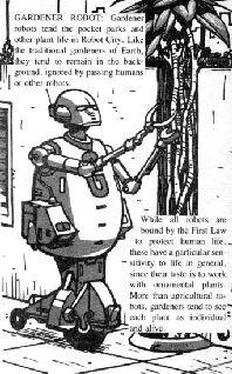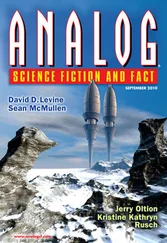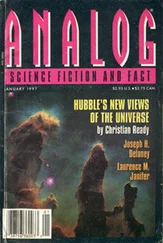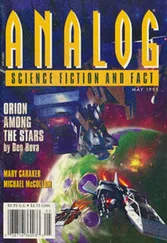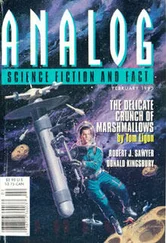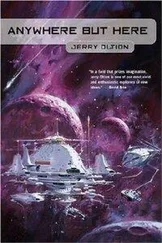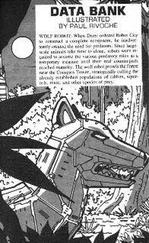Jerry Oltion - Alliance
Здесь есть возможность читать онлайн «Jerry Oltion - Alliance» весь текст электронной книги совершенно бесплатно (целиком полную версию без сокращений). В некоторых случаях можно слушать аудио, скачать через торрент в формате fb2 и присутствует краткое содержание. Год выпуска: 1990, ISBN: 1990, Издательство: Ace Books, Жанр: Фантастика и фэнтези, на английском языке. Описание произведения, (предисловие) а так же отзывы посетителей доступны на портале библиотеки ЛибКат.
- Название:Alliance
- Автор:
- Издательство:Ace Books
- Жанр:
- Год:1990
- ISBN:ISBN: 0-441-73130-9
- Рейтинг книги:3 / 5. Голосов: 1
-
Избранное:Добавить в избранное
- Отзывы:
-
Ваша оценка:
- 60
- 1
- 2
- 3
- 4
- 5
Alliance: краткое содержание, описание и аннотация
Предлагаем к чтению аннотацию, описание, краткое содержание или предисловие (зависит от того, что написал сам автор книги «Alliance»). Если вы не нашли необходимую информацию о книге — напишите в комментариях, мы постараемся отыскать её.
Alliance — читать онлайн бесплатно полную книгу (весь текст) целиком
Ниже представлен текст книги, разбитый по страницам. Система сохранения места последней прочитанной страницы, позволяет с удобством читать онлайн бесплатно книгу «Alliance», без необходимости каждый раз заново искать на чём Вы остановились. Поставьте закладку, и сможете в любой момент перейти на страницу, на которой закончили чтение.
Интервал:
Закладка:
While Derec and Avery set to work preparing the city robots for their reprogramming to suit the Ceremyons, Ariel and Wolruf set out to meet with them to find out what they had decided they wanted. The meeting was easy to arrange; Lucius contacted Adam and Eve, who were back with the aliens again, and between them they settled on a time and place.
Ariel left for the meeting in relatively high spirits, but she returned with a puzzled frown.
“The Ceremyons want us to make philosophers out of the robots,” she reported, slumping down in a chair and putting her hand to her forehead. “I told them that’s not what robots were for, but they insisted. They said they’ve got a bunch of difficult philosophical questions that they haven’t been able to work out, so their council decided to let the robots have a try at them.”
“What are the questions?” Avery asked, looking up from his computer terminal.
“They didn’t say. They said they wanted us to reprogram two robots for philosophy and let them see how well they work.”
Derec and Avery looked at one another with eyebrows raised skeptically. Derec said, “I don’t know, the original Wohler thought he was a philosopher, but I didn’t think he was very profound.”
“He was just spouting other people’s philosophy,” Ariel added. “He didn’t come up with anything of his own.”
“Of course he didn’t,” Avery said. “That’s because he didn’t do any cross-correlation. “As Derec watched, Avery, s skepticism disappeared, replaced by a fanatic gleam in his eye that Derec recognized. Avery saw the aliens’ request as a challenge, and he intended to meet it. “He wasn’t programmed to combine old information into new patterns, so all he could do was echo the thoughts of others. But if we give our robots the ability to compare and to generalize, and for working material load them up with all the philosophy texts in the central library, they ‘11 be able to out-think these Ceremyons hands down. It won’t be real thinking, but with a big enough library behind them, it’ll be completely convincing to the user. Ha! It’ll be easy. “Avery turned back to the computer and began keying instructions furiously.
Without looking up, he said, “Get this city’s Wohler unit up here to try it on. It should accept the new programming easier than just a random robot.”
“You melted him along with the other supervisors,” Derec reminded him.
“Oh. Well, then, have another one made.”
Derec obediently contacted the central core and advised it that Avery wanted another Wohler.
“Here, you can help with the programming, too. Dig out the code the supervisors use to reject crazy buildings, and see if you can modify it to filter out crazy thoughts. I’ll work on the correlation routine.”
With a smile and a shake of his head for Ariel’s benefit, Derec got to work. Ariel and Wolruf stayed for a few minutes, but soon became bored and left. Lucius stayed, standing silently behind Derec and Avery where he could see what either of them did.
They spent the better part of the afternoon on the project, but they were ready by the time a new golden-hued robot presented itself at the door.
“I am Wohler-l0,” the robot said.
Avery looked up, rubbed his eyes, and said, “Good. Scan this.” He banded Wohler a memory cube, which the robot took in its right hand. The hand flowed until it completely enveloped the cube, then after a few seconds returned to normal. Wohler gave the cube back to Avery.
“What is the relationship between free will and determinism?” Avery asked him.
“Determinism is necessary for free will, but not the reverse,” the robot answered without hesitation.
“Did you think that up just now, or was it already in memory?”
“It was already in memory.”
“Hmm. How does free will differ from freedom, and how does that difference affect a robot’s behavior?”
Wohler hesitated slightly this time before saying, “Free will is the ability to act upon desires. Freedom is the ability to use free will indiscriminately. For practical purposes, a robot has neither. I can elaborate if you wish.”
“No, that’s fine. Was that your thought this time?”
“It was a correlation from existing definitions, but it did not exist previously in the data bank.”
“Good. What is reality?”
“I quote: ‘Reality is that which, when you cease to believe in it, does not go away. ‘ Source: Phillip K. Dick, twentieth century author, Earth. I have on file seventy-three other definitions, but that one seems most logical.”
Avery grinned at Derec and spread his hands. “One out of three responses are original. That’ s a pretty good average among philosophers. I think he’ll do.”
Lucius made a humming sound, a robotic clearing of the throat. “May I ask a question?”
Avery frowned. He obviously still didn’t trust the renegade robot, but with a shrug, he said, “Fire away.”
Lucius turned to face Wohler. “What is a human?”
Wohler hesitated even longer than before. At last he said, “That definition depends upon your point of view.”
Avery burst into laughter. “He’s a philosopher, all right! Come on, let’s fix up another one and give them to the Ceremyons tomorrow.”
Chapter 9. Friends
They chose a regular city robot for the second philosopher, testing him thoroughly to make sure that his answers were the same as the brand-new Wohler’s. His experiences in the city and his previous reprogrammings didn’t seem to affect his responses at all. They arranged a meeting through Lucius, and this time they all went to present the philosopher robots to the aliens.
They met at the edge of the spaceport farthest from the city, a spot no doubt chosen by the aliens to communicate their displeasure with the city and its inhabitants.
There were two of the living silhouettes at the meeting this time, as well as two alien-looking but obviously robotic companions: Adam and Eve. The robots ignored the humans, and the humans returned the courtesy. Sarco ignored the robots as well, but, realizing that humans couldn’t distinguish one alien from another, he introduced himself again, then introduced his companion, Synapo, whom all but Avery had already met the first time they had been to Ceremya.
“And these are the philosophers?” Synapo asked dubiously. “I believe I recognize this one. It directed the killing of two of my people when this city first began growing here. It is a most unpleasant robot.”
Derec had forgotten about that incident. It had happened because the robots didn’t see the aliens as human, and were following the simplest procedure to get them out of the way. It was a stupid mistake then, and Derec’ s decision to use a Wohler model for a philosopher was a stupid mistake now. Wars had been fought over lesser matters.
“This is a different robot,” he said, trying to smooth over the unintended insult. “The old Wohler was inactivated.”
“A wise decision,” Synapo said. The alien looked to its. companion, receiving an eyeblink and a rustling of its wings in response. That was evidently the Ceremyon equivalent of a shrug, because Synapo said,” Well, then, to the test. Sarco, do you wish to ask the first question, or shall I?”
“The honor is yours,” Sarco said.
Synapo bobbed down and up again in a gesture no doubt meant as an acceptance of Sarco’s courtesy. “Very well. The new Wohler, then. I ask you this: What is the value of argument?”
Wohler folded his arms across his chest, a gesture Derec had taught him, and said, “The value of argument is that it allows two opposing views to be expressed, along with supporting evidence for each, so that an examination of the evidence can then lead to a determination of the more correct of the two views.”
Читать дальшеИнтервал:
Закладка:
Похожие книги на «Alliance»
Представляем Вашему вниманию похожие книги на «Alliance» списком для выбора. Мы отобрали схожую по названию и смыслу литературу в надежде предоставить читателям больше вариантов отыскать новые, интересные, ещё непрочитанные произведения.
Обсуждение, отзывы о книге «Alliance» и просто собственные мнения читателей. Оставьте ваши комментарии, напишите, что Вы думаете о произведении, его смысле или главных героях. Укажите что конкретно понравилось, а что нет, и почему Вы так считаете.
